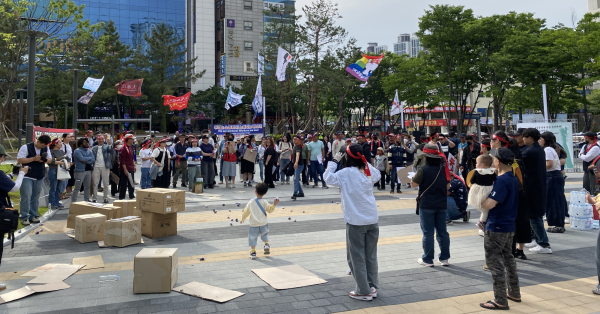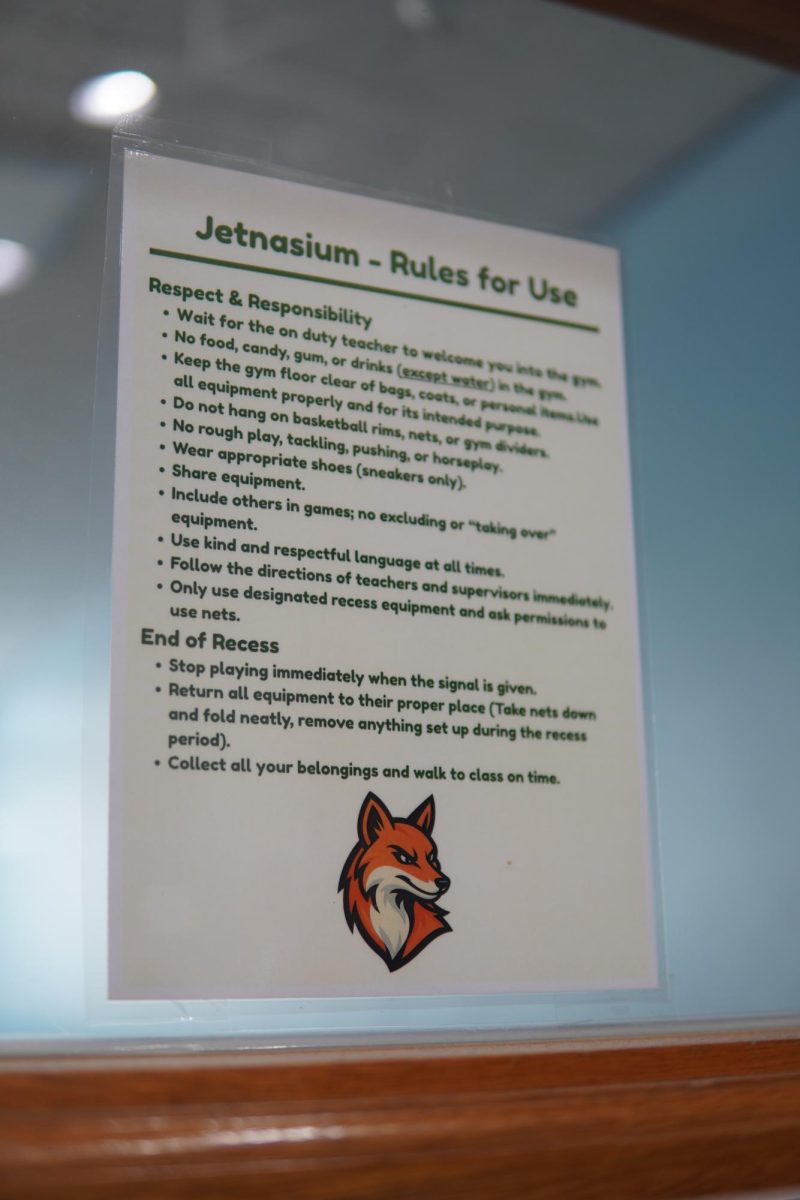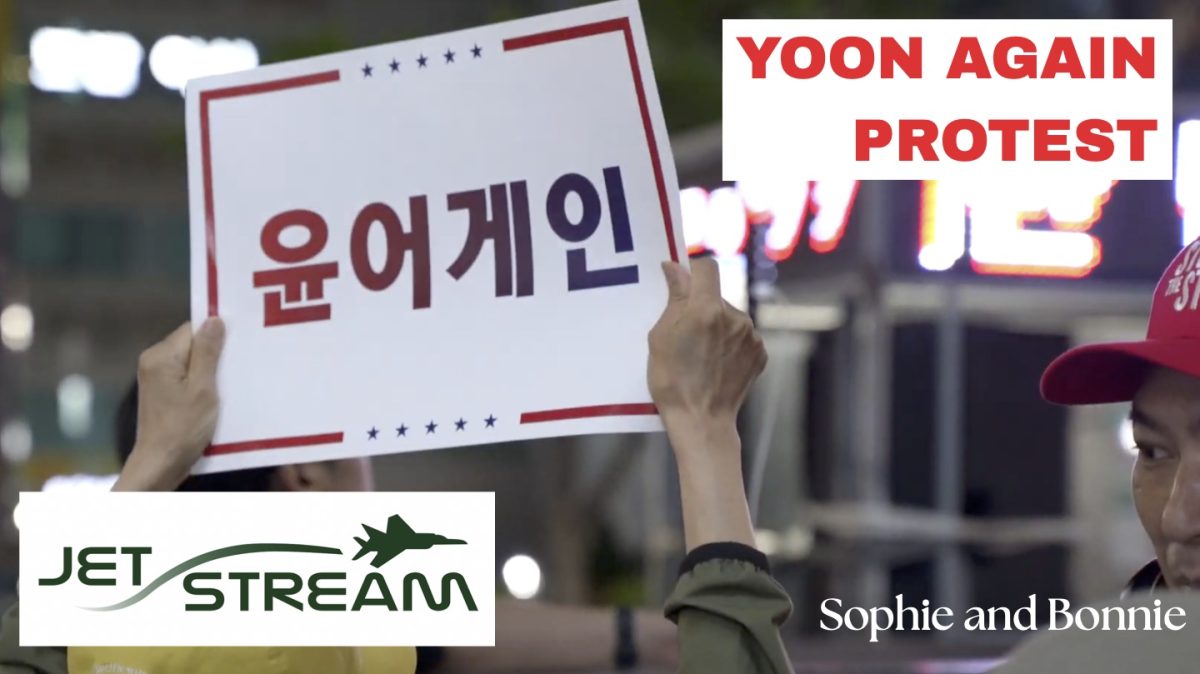*Disclaimer: The views expressed in this opinion piece are those of the writer and do not represent the Jets Flyover. Additionally, a protester chose to remain anonymous due to legal concerns arising from Korean Immigration Laws.
Members of the Korean Confederation of Trade Unions (KCTU), the second-largest labor union in the nation, expressed their dissatisfaction with the Employment Permit System (EPS) in downtown Daegu on April 27. Most significantly, protesters called for changes to the law, which states that foreigners may not transfer workplaces without proper justification and permission.
All foreign members of the workforce must pass through an application process. Notably, these regulations limit workplace transfers to three times and require business owners to agree to the change.
Since the introduction of EPS in 2004, foreign labor has become a significant part of Korean society—according to the Ministry of Justice of the Republic of Korea, over 2.5 million non-native workers reside in Korea today.

But controversies arise as foreign laborers work in 3D occupations—a popular acronym for Difficult, Dirty, and Dangerous blue-collar jobs. “Many of us enter Korea through the EPS, which the government presents as a welcoming system for us foreigners. But in a way, we are forced to stay in dangerous and difficult workplaces because it does not allow us to switch our workspaces freely,” said Minda Cha, a foreign laborer representative of the Korean Metal Workers’ Union.
In addition, protesters claim that the government harms their right to move businesses. “EPS looks fair as it states that we can switch workplaces by our will—however, they also state that we need to report this to our workplaces and receive documentation… If the business owners don’t cooperate, we can’t leave…so in reality, we don’t have the freedom to change workplaces,” said Cha.
Some even expressed extreme discontent against Korea’s immigration policies and their enforcement. “There are so many visa systems that get us so confused. If we don’t abide by their strict standards, they do a manhunt on us…our comrades aren’t illegal, as no one can be illegal—we just don’t have a visa,” said an anonymous member of the KCTU.
However, the excessive demands made by the protesters lack feasibility. Primarily, the Constitutional Court of Korea ruled that the requirements set by the EPS do not violate the constitution, as the system inclusively provides labor rights for foreigners, such as industrial accident insurance, minimum wage, and labor union access.
Additionally, the requirements set by the EPS cause few issues. “It is true that foreign employees must report their change in workplace to both the government and the employer, such as in the case of teachers who moved from other international schools in Korea to our school…however, from what I’ve seen, people rarely had problems with it,” said Jimin Park, an office manager in charge of visa management and legal counseling of over 30 foreign employees at Daegu International School.
Most significantly, the policies enforced through the EPS protect both Korean citizens and foreign laborers. “The government requires information about workplace change to keep track of everyone in the country, as the foreigners do not have Korean identification… if this was not done, the government wouldn’t be able to collect taxes from their workplaces, ensure that [the foreign workers’] working rights are kept, or take action when [the foreigners] are involved in crime,” said Park.
Indeed, government reports prove that crimes committed by illegal aliens are exacerbated by their lack of identification. Though statistics demonstrate that the offense rate of illegals differs insignificantly from legal foreigners, if they commit crimes, the government struggles to track them due to limited information. This proves the relevance of EPS guidelines in the prevention of felonies.
Though KCTU raises valid concerns on foreign laborers’ basic rights, Korea must leave current measures in place for the greater good. Moreover, the Ministry of Employment and Labor enacted policies to balance the addressed inequalities, ensuring minimum wage, labor union activities, and accident insurance. While improvements can still be made, EPS remains a crucial framework to manage foreign labor, uphold legal order, and support Korea’s economic and social stability.



















































